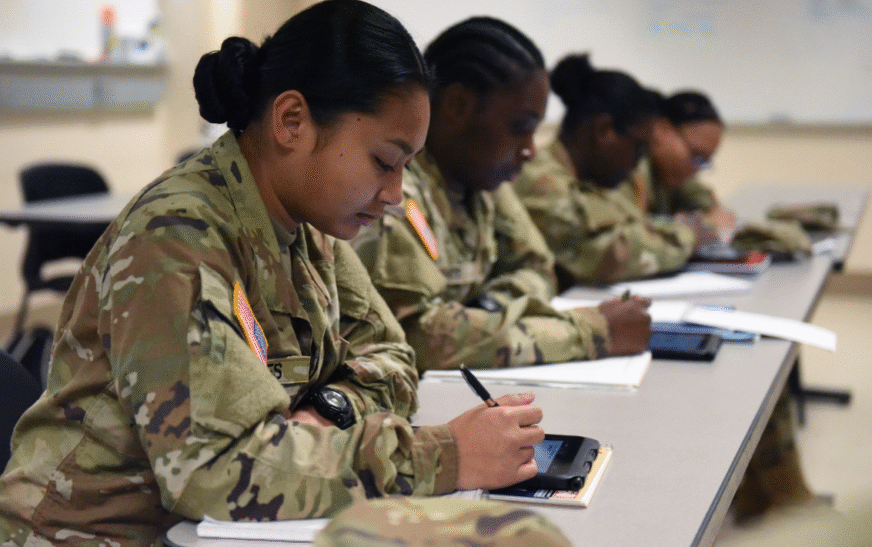For individuals pursuing a career in the military that involves foreign language training, the DLAB test plays a pivotal role. The DLAB is not just another standardized exam—it is a specialized assessment designed to measure one’s potential to learn a new language quickly and effectively. Unlike traditional exams, the DLAB does not focus on your existing knowledge of grammar or vocabulary. Instead, it evaluates your aptitude, logic, and ability to adapt to unfamiliar linguistic structures.
What is the DLAB?
The DLAB is an aptitude assessment, not a knowledge-based test. Its primary purpose is to measure whether you have the potential to succeed in intensive foreign language training. This makes it unique compared to standardized tests like the SAT or ACT, which evaluate learned knowledge rather than natural ability.
Why the DLAB is Important
Scoring well on the DLAB has significant implications for your career.
1. Access to Language Training
The Department of Defense invests heavily in training service members in critical foreign languages. A high DLAB score is your ticket to studying at DLIFLC.
2. Expanded Career Opportunities
Language skills are a valuable asset in the military. They can lead to assignments in intelligence, foreign relations, and even elite special operations units.
3. Determining Language Category Placement
Your score on the DLAB determines which category of languages you qualify for:
- Category I & II (easiest): Spanish, French, Italian
- Category III (moderate difficulty): Russian, Hebrew, Persian
- Category IV (most difficult): Arabic, Mandarin Chinese, Korean, Japanese
The higher your score, the more advanced the language categories you may be eligible for.
4. Long-Term Benefits
Beyond your time in service, strong language skills acquired through DLAB-based training can create opportunities in government, international business, and security organizations.
How to Prepare for the DLAB
While the DLAB does not require prior knowledge of a foreign language, preparation is still possible. Here are proven strategies:
1. Strengthen Grammar Knowledge
Understanding how English grammar works will help you adapt to the artificial grammar rules in the DLAB. Brush up on concepts like subject-verb agreement, modifiers, and sentence structure.
2. Practice Pattern Recognition
Engage in puzzles, logic games, and brain teasers. These improve your ability to spot patterns and apply rules quickly—skills directly tested in the DLAB.
3. Train Your Ear
Listen to audio in unfamiliar languages. Even if you don’t understand the words, focus on rhythm, stress, and sound patterns. This will help your brain adapt during the auditory section.
4. Improve Short-Term Memory
The DLAB requires you to hold onto new rules and apply them quickly. Memory training apps, repetition drills, or even simple memory games can sharpen this skill.
5. Familiarize Yourself with Test Conditions
While the DLAB’s artificial language rules change each time, looking at sample practice materials can help you feel comfortable with the exam’s structure.
Career Paths After the DLAB
Scoring well on the DLAB can launch an exciting and diverse career path in the military.
Military Intelligence
Language specialists are in high demand for intelligence collection, analysis, and translation.
Special Operations
Many elite units require proficiency in foreign languages for international deployments and cultural immersion.
Diplomatic and Liaison Roles
Service members with strong language skills often serve in liaison positions with foreign governments or allied military units.
Post-Military Opportunities
After service, language-trained veterans are highly valued in federal agencies, international business, and education.
Common Myths About the DLAB
- “You need to speak a foreign language to pass.”
Not true—the DLAB measures aptitude, not existing knowledge.
- “It’s impossible to study for.”
While you can’t memorize content, you can absolutely strengthen the cognitive skills it evaluates.
- “If you fail once, you’re done.”
Retakes are often allowed, though policies vary by branch.
Practical Test-Day Tips
- Arrive Early: Give yourself time to relax before the exam.
- Stay Focused: Especially during the audio section, since recordings are only played once.
- Don’t Overthink: The DLAB rewards adaptability, not perfection.
- Keep Calm: Some questions are designed to feel confusing—remain composed and apply rules logically.
Conclusion
The DLAB is more than just a military requirement—it is a gateway to exciting opportunities that extend well beyond service. By scoring high, you gain access to specialized training, prestigious assignments, and lifelong skills. While the DLAB cannot be studied for in the traditional sense, strengthening your grammar, memory, and logical reasoning will set you up for success.













